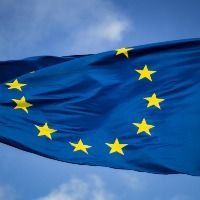Yesterday, Thierry Bretan, an EU Commissioner, wrote a letter to Elon Musk of X (formerly Twitter) to warn of potential violations of the recently enacted Digital Services Act (DSA). https://twitter.com/ThierryBreton/status/ 1711808891757944866?s=20. This letter mentions the recent Hamas attack on Israel, and refers to unspecified content that is “illegal,” and described as “violent and terrorist content,” and as containing “fake and manipulated images and facts.”
I am no Elon Musk apologist, and I certainly don’t support social media sites giving terrorist organizations the tools to plan and promote violent acts. However, Mr. Bretan’s letter is worthy of discussion as it illustrates how the EU, through enforcement of the DSA, appears to be willing to regulate the Internet in ways that may be odds with expansive free speech rights.
For example, the DSA repeatedly refers to illegal “hate speech” without defining such. It is a difficult line to draw to determine where vigorous, critical, controversial, (even aggressive) discussion ends, and where hate speech ends. If violence is not explicitly advocated, then should revolutionary or radical rhetoric be outlawed? And who gets to decide these questions?
For example, if the postings Mr. Bretan complains of called for the overthrow of the Israeli government or aggressive resistance without mentioning violence should the EU be able to demand that they be taken down by Mr. Musk? If content is deemed to be illegal “hate speech” in the EU but protected by the First Amendment in the US (where there are not prohibitions on hate speech), should the EU be permitted to demand that American users of Twitter be blocked from sharing such content with European users?
In evaluating these questions, it should be kept in mind that there generally is no need for legal protections for speech that most people agree with. It is only with respect to controversial speech that can be argues as being “dangerous” that protections are necessary.
As discussed in my previous post, recent court cases in the United States have addressed whether government efforts to regulate content on the Internet deemed to be harmful can survive legal challenges based on the First Amendment. It is likely that the US Supreme Court will weigh in on this subject at least once during its current term. https://www.supremecourt.gov/qp/22-00555qp.pdf. It will be interesting to see if similar cases are brought in Europe, and whether the lines drawn between protected speech and illegal speech are the same.

Member discussion: